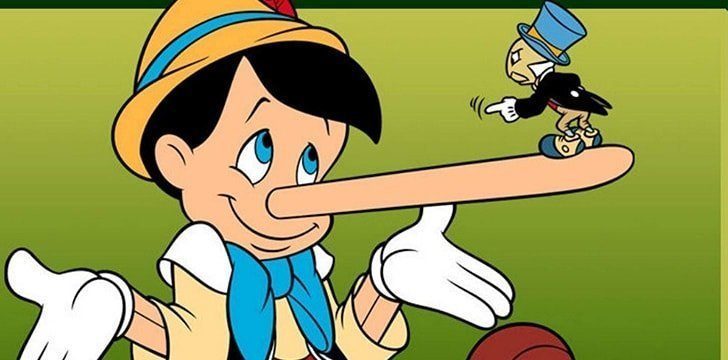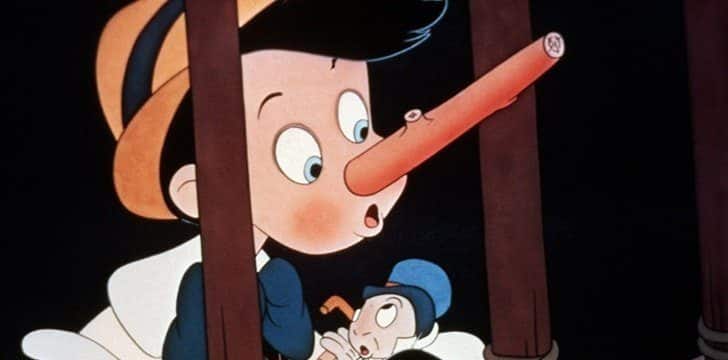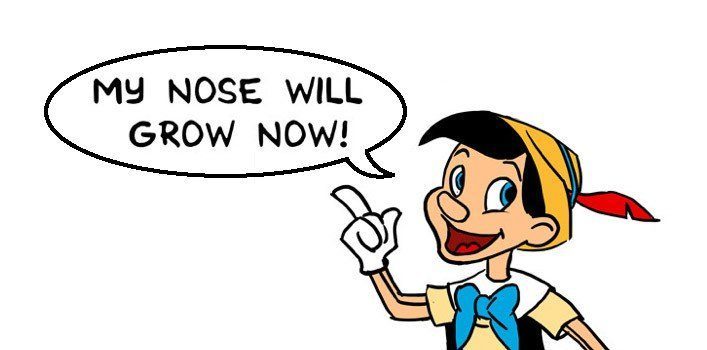So there’s a good chance you’ve not heard of this before, but if Pinocchio said the statement “My nose will grow now” it would cause be a paradox…
Let me explain…

As we all know, Pinocchio’s nose grows when he tells a lie.
So if he said “my nose will grow now” – if his nose does grow that would mean he wasn’t lying, but if he wasn’t lying, his nose wouldn’t grow.
But then his statement would be a lie… so his nose would grow.. but then the statement wouldn’t be a lie… so his nose wouldn’t grow… but yeah, you get the idea..
Basically, his nose would have to grow to make Pinocchio’s statement not a lie, but then it can’t grow otherwise the statement would not be a lie.
Pinocchio’s Paradox origins.

The Pinocchio paradox was thought of in February 2001 by an 11-year-old called Veronique Eldridge-Smith – the daughter of Peter Eldridge-Smith, who specializes in the philosophy of logic.
The article was first published in the journal Analysis, and the Pinocchio paradox rapidly became popular on the Internet.
“My nose will grow now” is the only paradox Pinocchio can cause by saying something.
For example, if he was to say, “I will sneeze now”, and he didn’t that would be a lie and his nose would grow.
Hope this makes sense & if you’ve got any more crazy paradox’s, let us know!

















